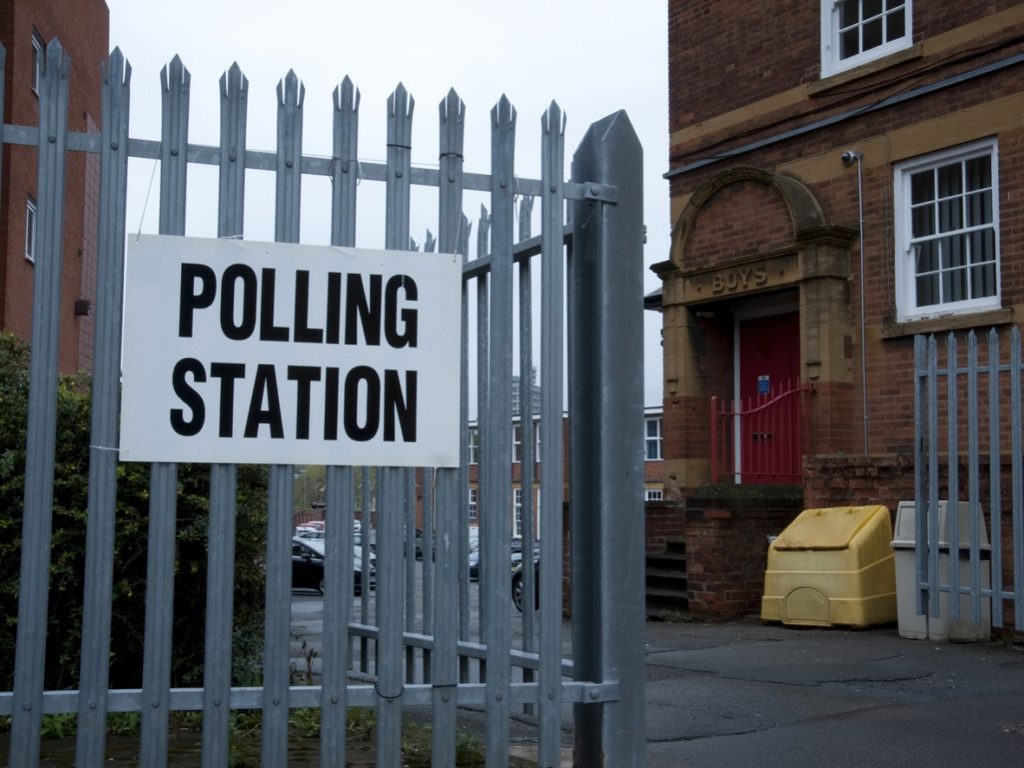Springtime should be peak season for local politics. But last March, in one fell swoop, the pandemic slammed the brakes on the 2020 election cycle. Eight mayoral contests, several local referendums and over 100 council elections in England were postponed. Fast forward to February 2021, and tentative plans are being laid for a Super Thursday of in-person, socially-distanced polling (but only if you Bring-You-Own-Pencil).
Concurrently, we’re approaching an unmapped junction with two forks: the direction taken will determine whether civic political participation in post-pandemic Britain is either revitalised or rejected.
Clearly, very few people would have been happy about a second postponement and a further over-extension of mandate. But it’s equally clear that, owing to the practical implications of social distancing, it will be near impossible for citizens to become engaged, active participants in the upcoming elections.
The traditional means by which politicians engage in dialogue with the public (and vice versa) rely heavily on person-to-person interaction. However, it would be both irresponsible and a PR own-goal to encourage physical hustings, town-hall debates and door-to-door canvassing whilst the national ‘R-rate’ remains stubbornly high.


Nevertheless, the hasty workarounds put in place for May have sparked a backlash from those frustrated at their inability to have a say in the incredibly important decisions being made at a local and regional level. These are decisions about how communities should rebuild in the pandemic aftermath, about how families and businesses should be supported, about how sizable budgets should be spent.
When people are not given easily-accessible means by which to get involved in local politics, engagement levels will inevitably decline. This is more than a blow to civic spirit; decreased participation correlates with falling levels of public trust; it erodes the legitimacy of the ruling authorities, and decisions get made uninformed by the opinions of the people who’ll be directly impacted.
Unless leaders find new ways to engage citizens across the demographic divide, communities risk permanently losing a generation of participants in local decision making.
According to the government’s 2019/20 Civic Engagement and Social Action – Community Life Survey, only 24% of 24-35 year olds in England believe that they have the power to influence local decision making. In that same cohort, only 17% participate in any form of civic consultation. This trend will not automatically be reversed once social distancing is behind us; it’s an entrenched issue that is crying out for proactive attention.
With government leaders currently laying plans to ‘build back better’ in the pandemic aftermath, now is a moment rich in opportunity. To ensure stable foundations, communities must be reacquainted with the mechanisms of local decision making, and the young must be educated in how to exercise their power within the framework of local democracy.
However, instead of focusing on the opportunities rendered impossible by social distancing, the upcoming elections are the perfect opportunity for local councils to pioneer new, pandemic-proof ways to consult and engage. Now is the moment to acknowledge that a political system that relies disproportionately on in-person participation is no longer fit for purpose; our digital world demands an appropriate digital route for citizens to exercise their democratic rights.
An array of such digital civic engagement projects have been pioneered in progressive cities during the pandemic: their successes provide a blueprint for similar initiatives to be rolled out at scale. For example, in the municipality of Leiden in the Netherlands, a digital platform is being leveraged to consult and communicate with residents regarding various neighbourhood development projects. To date, 4,500 residents have accessed an online portal on which they have voted on project proposals, debated the ideas of their peers and even virtually ‘speed dated’ with councillors. Projects such as this imbue diverse populations with a sense of ownership and investment in their local areas, and set a precedent of people-first decision making.
Over on the other side of the world, the Chilean Municipality of Peñalolén concluded their digital participatory budgeting project in April, under the slogan ¡En mi Barrio, Yo decido! (In my neighbourhood, I decide!). By allowing residents to submit and vote on ideas via an online platform, the municipality received direct input from 10% of the population on the allocation of 500,000,000 pesos (approx. $662,515) to ten different community projects. By replicating these socially-distanced engagement strategies, councils in Britain could benefit from the same surging participation rates in their own communities.
The past twelve months have provided a chance to experiment with innovative tech-driven solutions to the hurdles of socially-distanced democracy, and innovators have risen admirably to the challenge. The tools are now on the table; May’s elections could be the catalyst for the successes of pioneering online civic engagement projects to be replicated at scale. With the right investment and prioritization, 2021 could be the year that citizen-driven decision making provides the foundations for communities to truly ‘build back better’.












